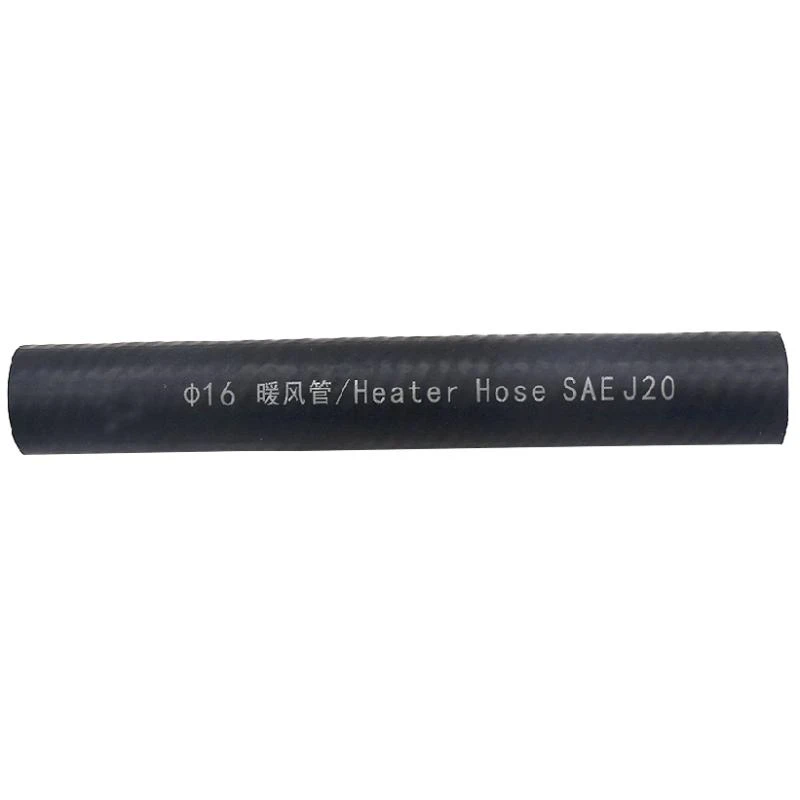fuel hose pipe
دېكابىر . 11, 2024 11:42 Back to list
fuel hose pipe
Understanding Fuel Hose Pipes Importance, Types, and Maintenance
Fuel hose pipes play a crucial role in the automotive industry and various machinery applications. These pipes are designed to transport fuel from the tank to the engine, ensuring that the vehicle operates efficiently and safely. Given the critical nature of this function, understanding fuel hose pipes' types, materials, and maintenance practices is essential for vehicle owners, manufacturers, and mechanics alike.
The Importance of Fuel Hose Pipes
Fuel hose pipes are vital for the proper functioning of any fuel delivery system. They act as conduits that transport petrol or diesel to the engine, allowing it to combust and power the vehicle. Poor performance or failure of fuel hoses can lead to fuel leaks, which pose significant risks including fires, environmental pollution, and engine failure. Thus, maintaining the integrity of fuel hose pipes is paramount for safety and functionality.
Types of Fuel Hose Pipes
Fuel hose pipes come in various types, each designed for specific applications
. The most common types include1. Standard Fuel Hose Made from rubber or synthetic materials, these hoses are typically used in many automotive applications. They are designed to handle gasoline, diesel, and oil, offering good flexibility and resistance to ozonization.
2. Fuel Injection Hose This type of hose is designed to withstand higher pressures, as it is used in fuel injection systems in modern vehicles. They are often constructed from reinforced materials to prevent bursting under pressure.
3. Specialty Hoses These hoses may be designed for specific fuels, such as biofuels or alcohol-based fuels. They are often made with materials that can resist the corrosive properties of these alternative fuels.
4. High-Temperature Hoses In applications where fuel lines are exposed to high temperatures, these hoses are manufactured with thermal-resistant materials to ensure longevity and reliability.
Materials Used in Fuel Hose Pipes
The material composition of fuel hose pipes is crucial in determining their durability and effectiveness. Here are some commonly used materials
fuel hose pipe

- Rubber Traditional fuel hoses are often made from rubber, which provides good flexibility and resistance to cuts. However, rubber can degrade over time due to exposure to fuel and environmental factors.
- Nitrile Rubber This synthetic rubber has superior resistance to oil and fuel, making it a popular choice for modern fuel hoses. It is also more resistant to temperature extremes.
- Polyurethane Known for its excellent abrasion resistance, polyurethane hoses are growing in popularity, especially in performance applications.
- PTFE Polytetrafluoroethylene hoses are known for their exceptional chemical resistance and ability to handle high temperatures. They are typically used in high-performance or specialized applications.
Maintenance Tips for Fuel Hose Pipes
To ensure the longevity of fuel hose pipes, regular maintenance is essential
1. Regular Inspections Periodically check the fuel hose for signs of wear, cracking, or leaks. Any damage should be addressed immediately to prevent potential hazards.
2. Proper Installation Ensure that the hoses are installed correctly, without kinks or sharp bends that could restrict fuel flow or lead to damage.
3. Use Compatible Materials When replacing hoses, always use materials compatible with the type of fuel being used. This is especially important with newer biofuels, which can degrade older materials.
4. Temperature Monitoring Keep an eye on the operating temperatures of hoses, especially in high-performance applications, to avoid overheating and potential failure.
5. Professional Consultation If unsure about the condition of your fuel hoses, seek advice from a qualified mechanic or automotive technician.
In conclusion, fuel hose pipes are essential components in vehicle fuel systems. Understanding their types, materials, and maintenance practices can help ensure optimal performance and safety. Regular inspections and proper handling can significantly extend the lifespan of these vital components, ultimately contributing to the safe operation of vehicles and machinery.
Latest news
-
High-Quality AC Pressure Hose for Reliable Car Air Conditioning Repair
NewsJul.28,2025
-
Oil Cooler Hose SAE J1532 – Durable, High-Performance, Flexible Solution
NewsJul.27,2025
-
High-Quality Automotive Fuel Line for Cars & E85 Applications
NewsJul.26,2025
-
Fuel Hose SAE J30R9 - High Pressure, Durable, Low Permeation
NewsJul.25,2025
-
Durable Air Conditioner Hose for Car – High Pressure, Easy Installation
NewsJul.24,2025
-
Durable Air Conditioner Hose Car – High Pressure & Recharge Solutions
NewsJul.23,2025
